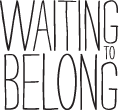The power of rituals at Christmastime
Ideas for a more settled holiday season
By Focus on the Family Canada staff
As the holidays approach, many foster and adoptive parents realize that this season can bring extra challenges for their children. An article I read recently told of one family of children who had been removed from their home right in the midst of the Christmas holidays. As a result, the holidays continue to be a difficult time as the children settle into their new, safe adoptive home.
Even if your children have not experienced trauma directly related to Christmastime, there are many factors that can combine to upset their sense of “normal.”
As much as we all look forward to the break from school (and hopefully work), this break disrupts routines that can be very stabilizing for children. Activity levels can be higher as we scurry from one engagement to the next, and our children experience a more unpredictable schedule. Extra food, especially sugary treats, can raise kids’ energy levels – and send them crashing when they come down from the sugar highs. Anticipation of gifts creates excitement, but can also bring disappointment if a child does not receive a gift they hoped for. In this season, emotions just seem to run higher, even for “normal” families without any trauma histories.
Then there are the challenges of relationships. Most families have some family members who require “kid gloves” to manage, creating tensions somewhere along the way.
There are a number of ways you can proactively manage these Christmastime challenges. One particularly helpful strategy is to create rituals. A good definition of “ritual” is “an act or series of acts done in a particular situation and in the same way each time.”1
If your Christmas vacation can incorporate predictable rituals, it may help create a warmer, safer feeling for children who do not do well with disruptions. Special activities – such as marking off the days on an Advent calendar, attending an annual concert, trimming the tree at a special time, preparing special foods together, reading the Christmas story on Christmas Eve or Christmas morning – become activities that, as you do them year after year, build a sense of “this is what our family does together.” Children don’t have to wonder what comes next, and fear can be alleviated because they know that, each year, they can look forward to certain traditions that are consistent.
Some families also find that slowing down the pace over the holidays is very helpful. Maybe some of your rituals can be intentionally chosen to balance activity with times of relaxation.
One family I knew made a tradition of hanging out together in their pajamas all morning during the Christmas break. Their attitude was, We just don’t go anywhere or do anything before noon! Rather than endless visits with extended relatives, perhaps one of your annual rituals could be a skating party where all the cousins gather and work off some energy together.
Rituals can include playing board games after Christmas dinner, attending worship together on Christmas Eve, going carolling, serving the less fortunate, taking gifts to shut-ins, baking cinnamon buns for breakfast on Boxing Day . . . whatever brings you joy as a family!
Don’t try to do it all. Just choose a handful of things that will be meaningful for your family and bring a sense of happy anticipation to your children. If your children get out of school mid-December and know that there are familiar activities coming that they can look forward to each year, this can help to bridge the anxiety that is prone to develop when transitions are hard for kids.
1. Source: Merriam-webster.com
© 2015 Focus on the Family (Canada) Association. All rights reserved.
